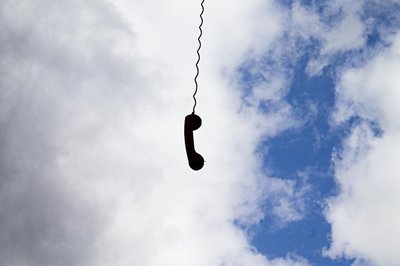Thoughts for the Day
Thursday, 19th August 2021: In His word I hope
Hope God Psalm 130 Psalm
Reading : Verses from Psalm 130

Out of the depths I cry to you, O Lord.
Lord, hear my voice!
Let your ears be attentive
to the voice of my supplications!
If you, O Lord, should mark iniquities,
Lord, who could stand?
But there is forgiveness with you,
so that you may be revered.
I wait for the Lord, my soul waits,
and in his word I hope;
my soul waits for the Lord
more than those who watch for the morning.
(Church in Wales Lectionary, New Revised Standard Version)
Thoughts
I have often compared making a phone call to prayer with God. For example, we have to decide to make the call; then actually make the call; we speak; and we listen - perhaps giving information or asking for something. We do all this when we pray: we find a moment to speak to God, and we ask and we listen to him. Prayer should be as simple as making a phone call.
In one of my books there is a picture of a phone with the heading of Prayer. I had whimsically imagined God with hundreds of phones receiving millions of phone calls every day! Psalm 130 reminded me of this silly scenario because of the first verse. The psalmist out of the depths of his despair, whatever that may be, asks God to hear his voice and to 'let his ears be attentive' to his appeals for help, trusting that he will forgive his sin.
I wonder how often we remember to turn to God when we feel desperate, and whether we have the kind of hope the psalmist has, so that we can say with such confidence 'in his word I hope'.
Prayer
Lord God,
when things go wrong,
when we feel we are in over our head,
and there is nowhere to turn,
may we remember that You are always there,
ready to listen
and ready to answer our petitions,
as is best for us.
Amen.
The following video by Dr Rex Rogers looks at the scene in Bunyan's 'Pilgrim's Progress' when Christian falls into the Slough of Despond (which is shown as a bog in the book). The Slough is a time when we are in total despair, and Dr Rogers looks at how we can be helped to get out of such a bog and back on the road again.